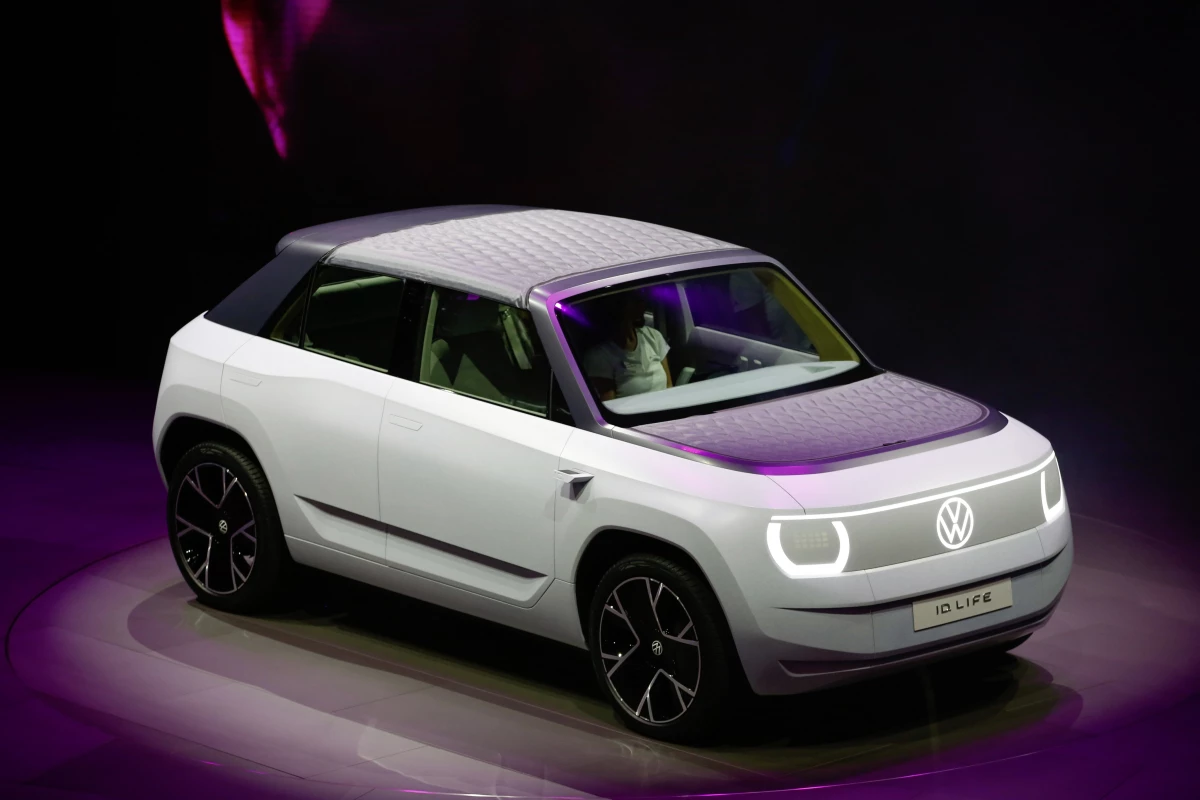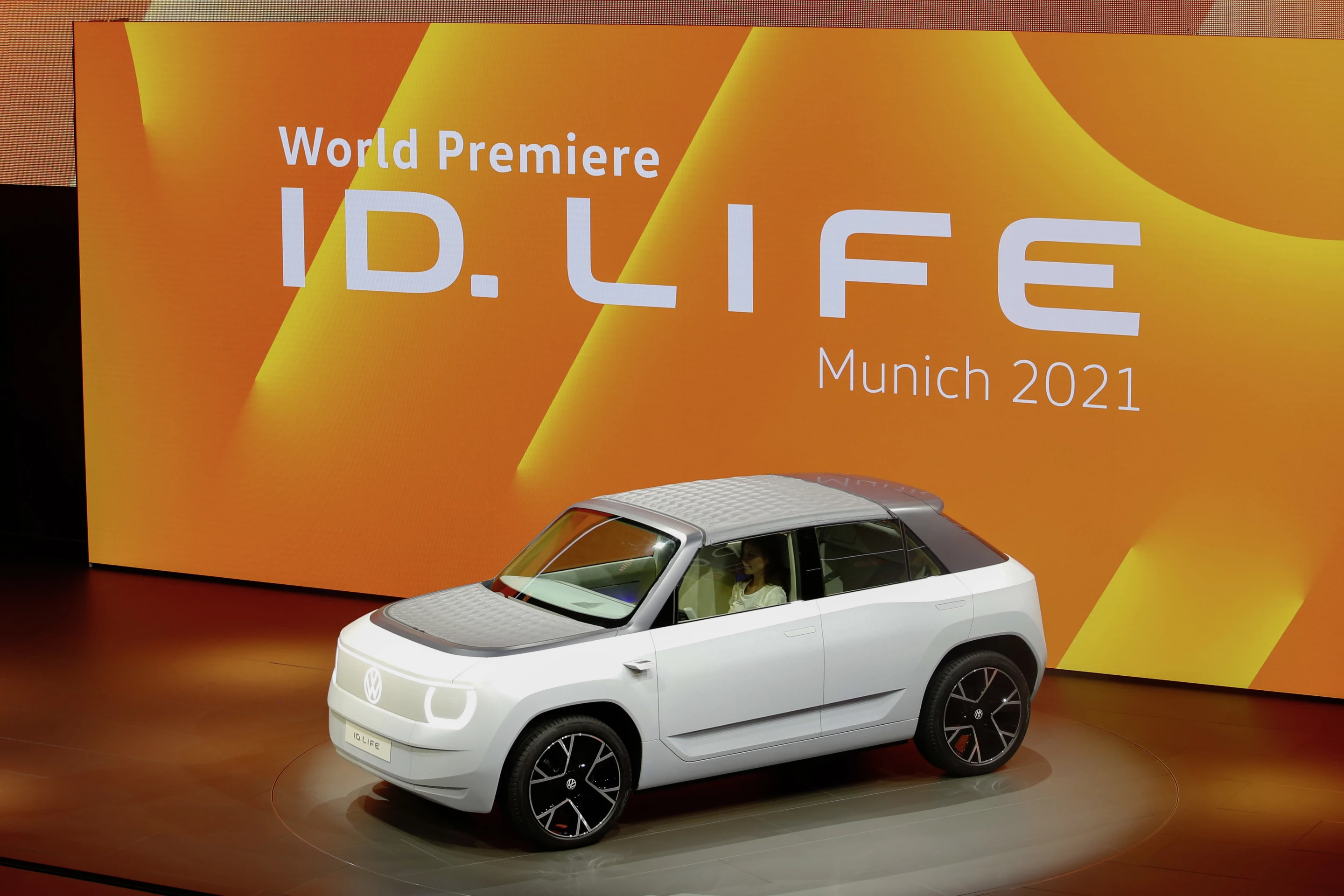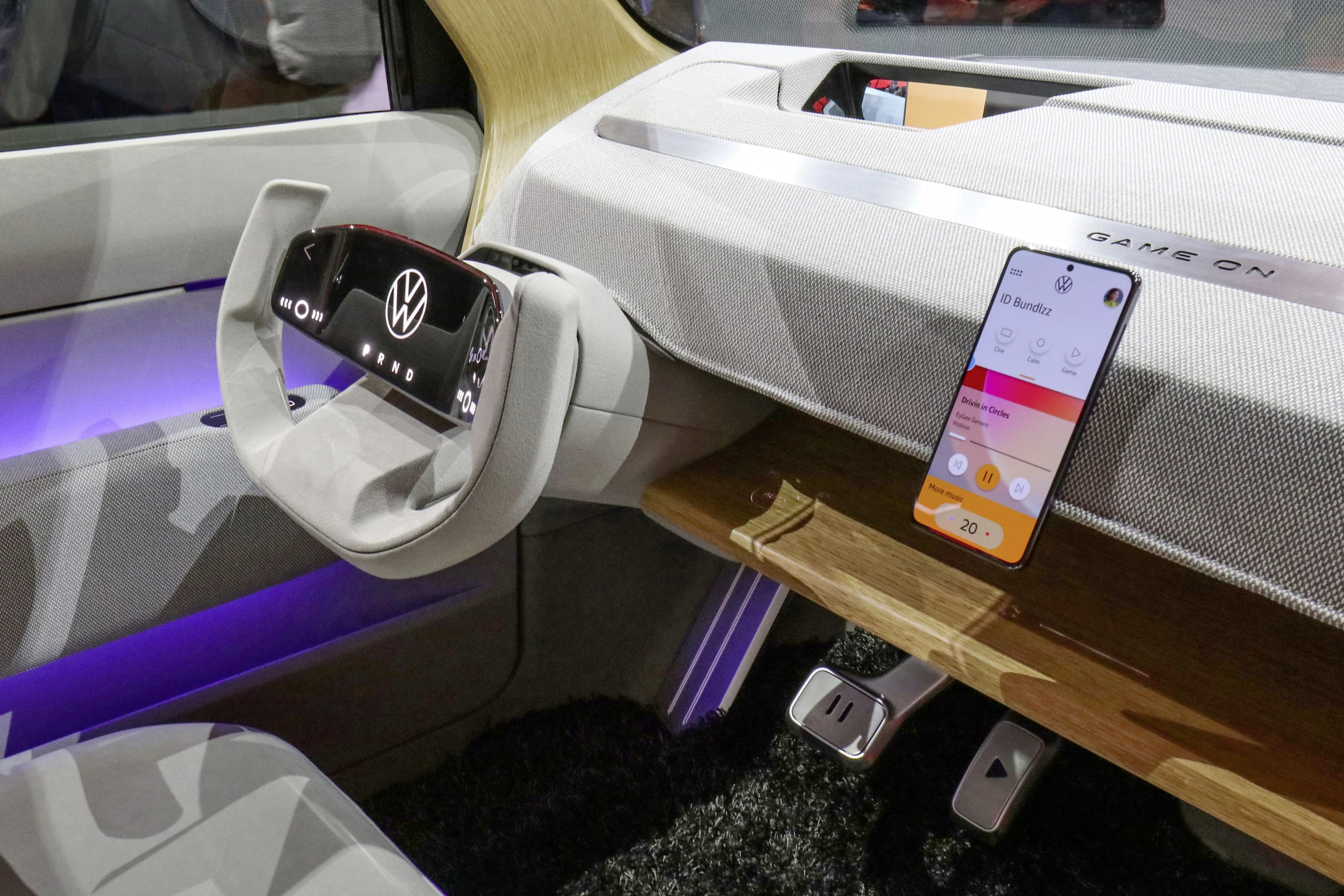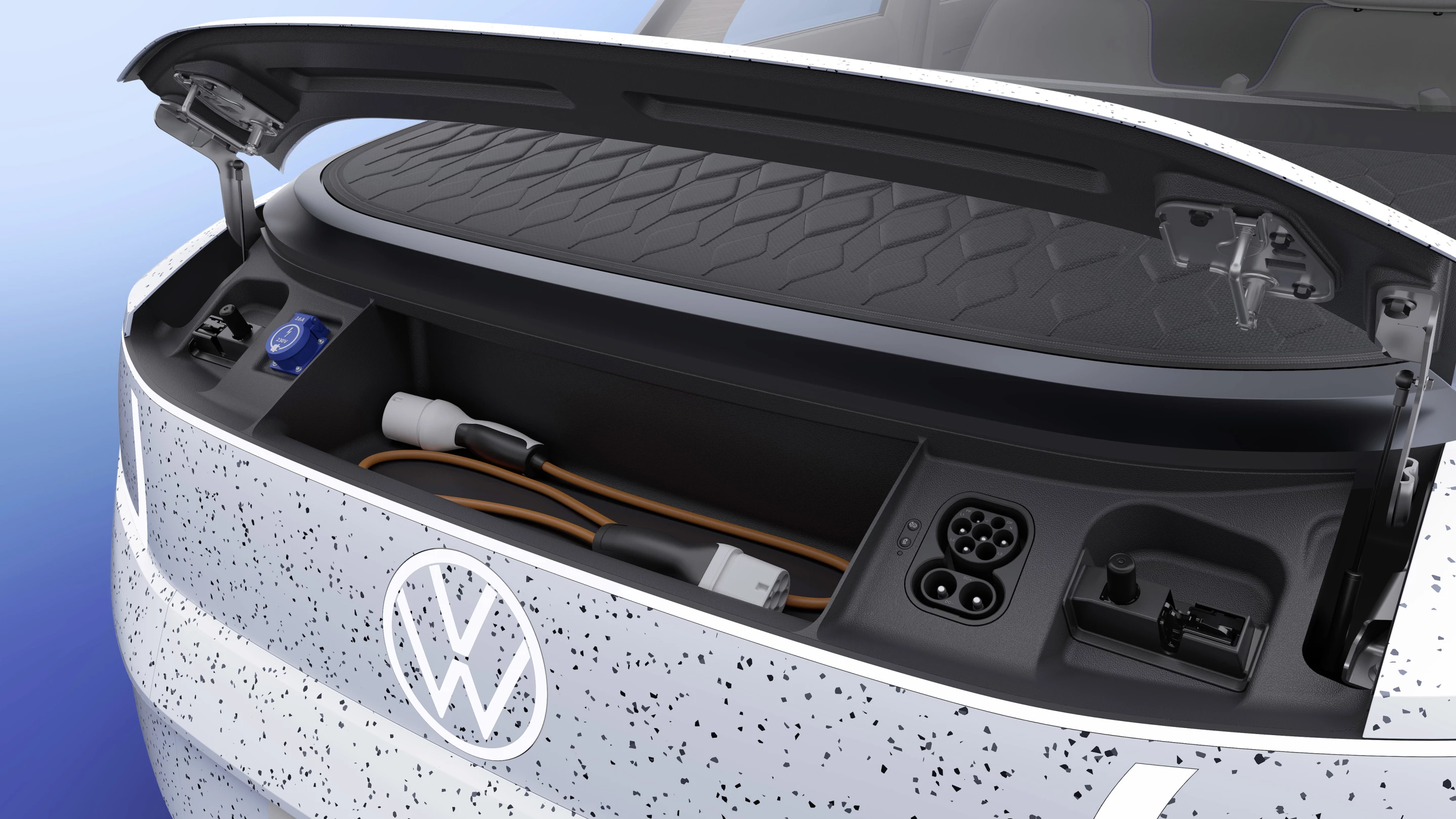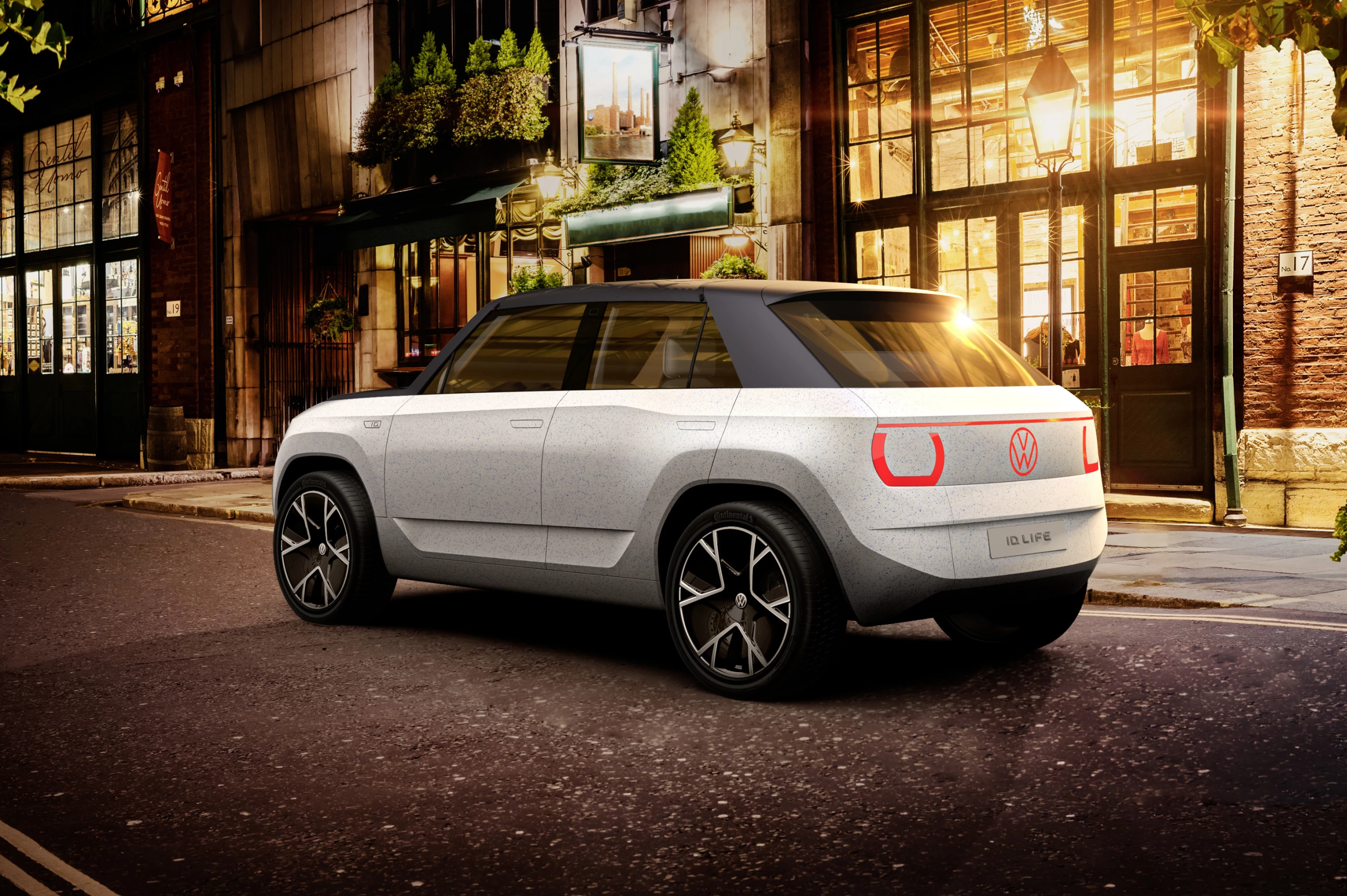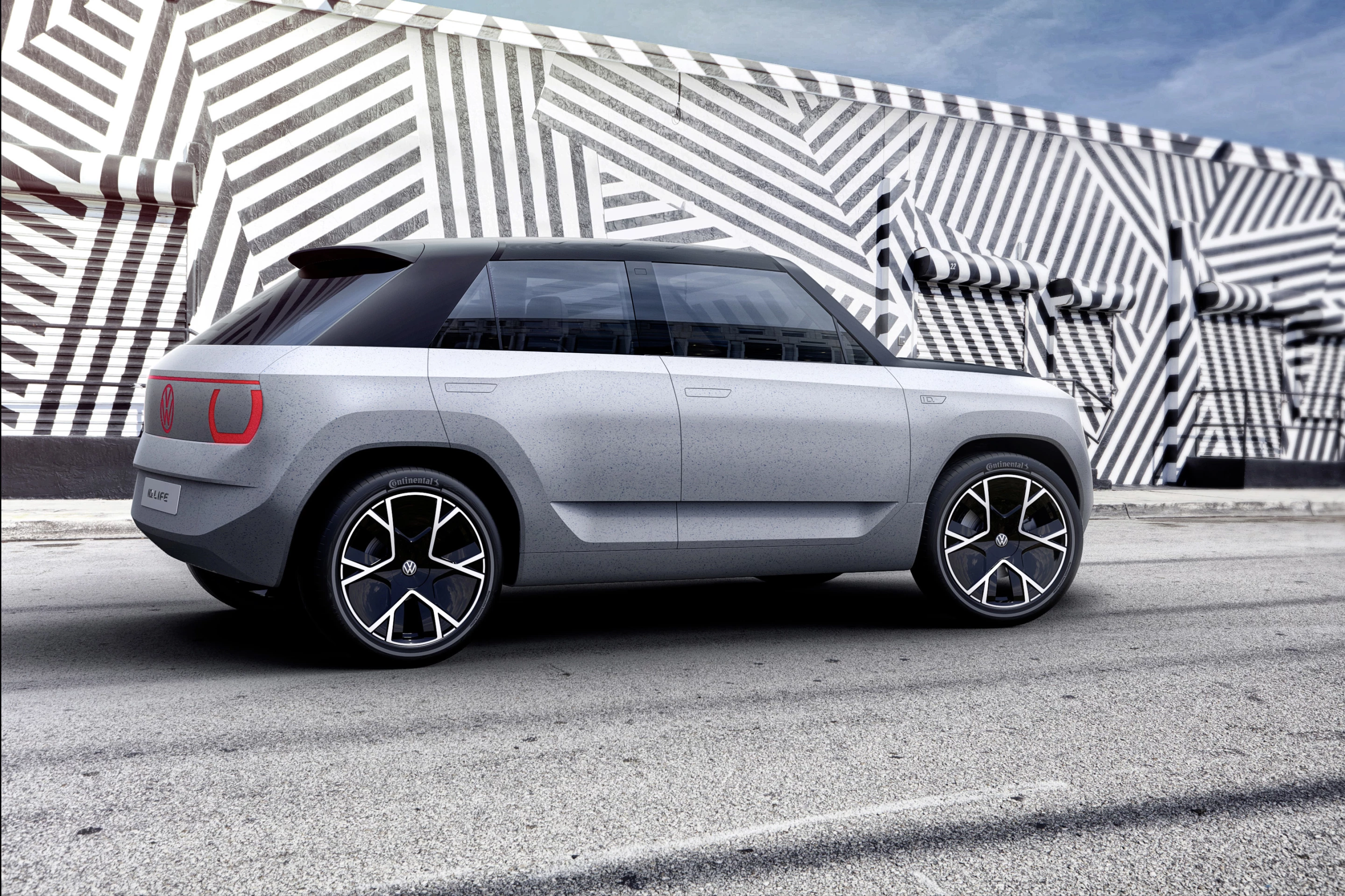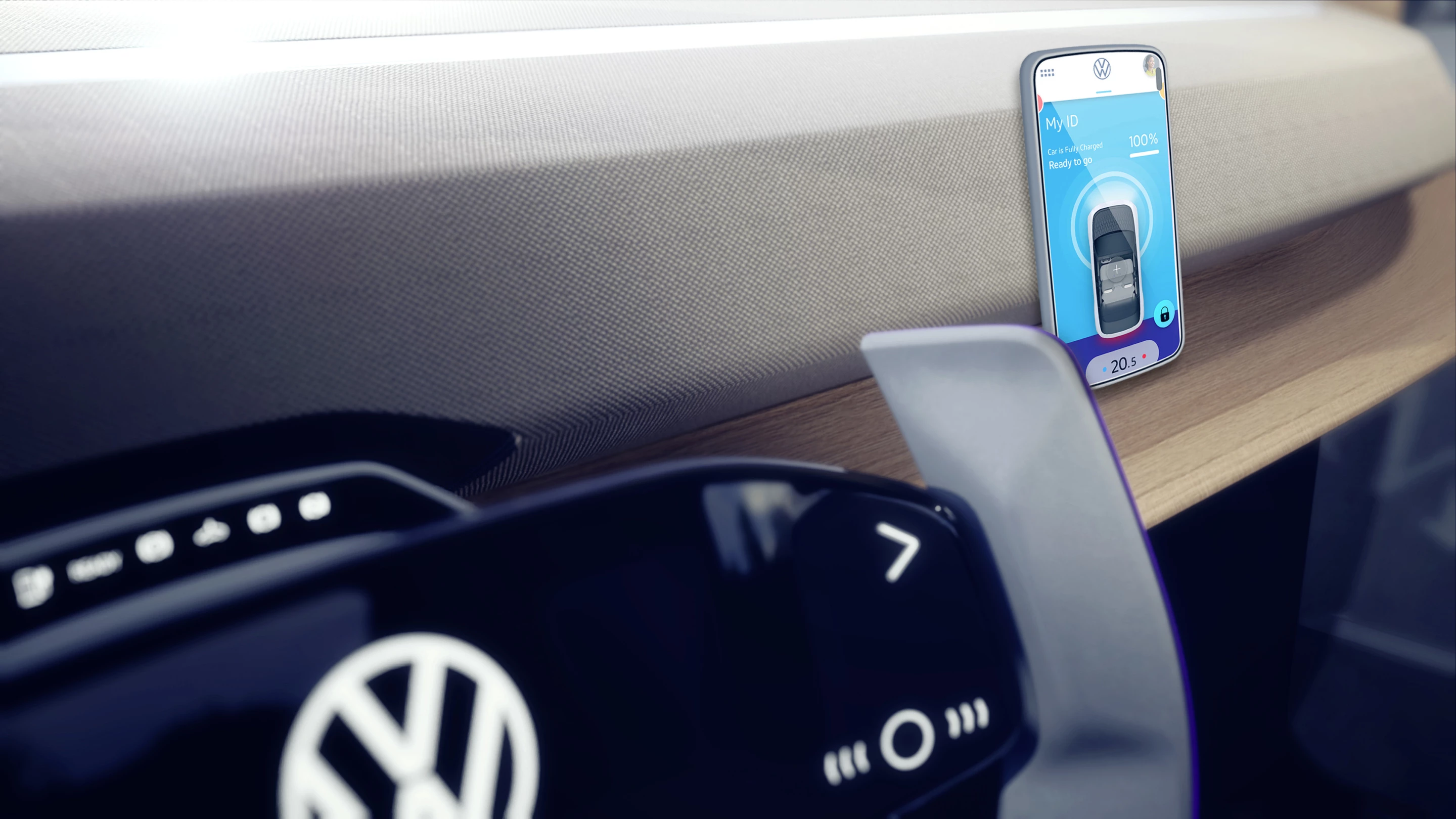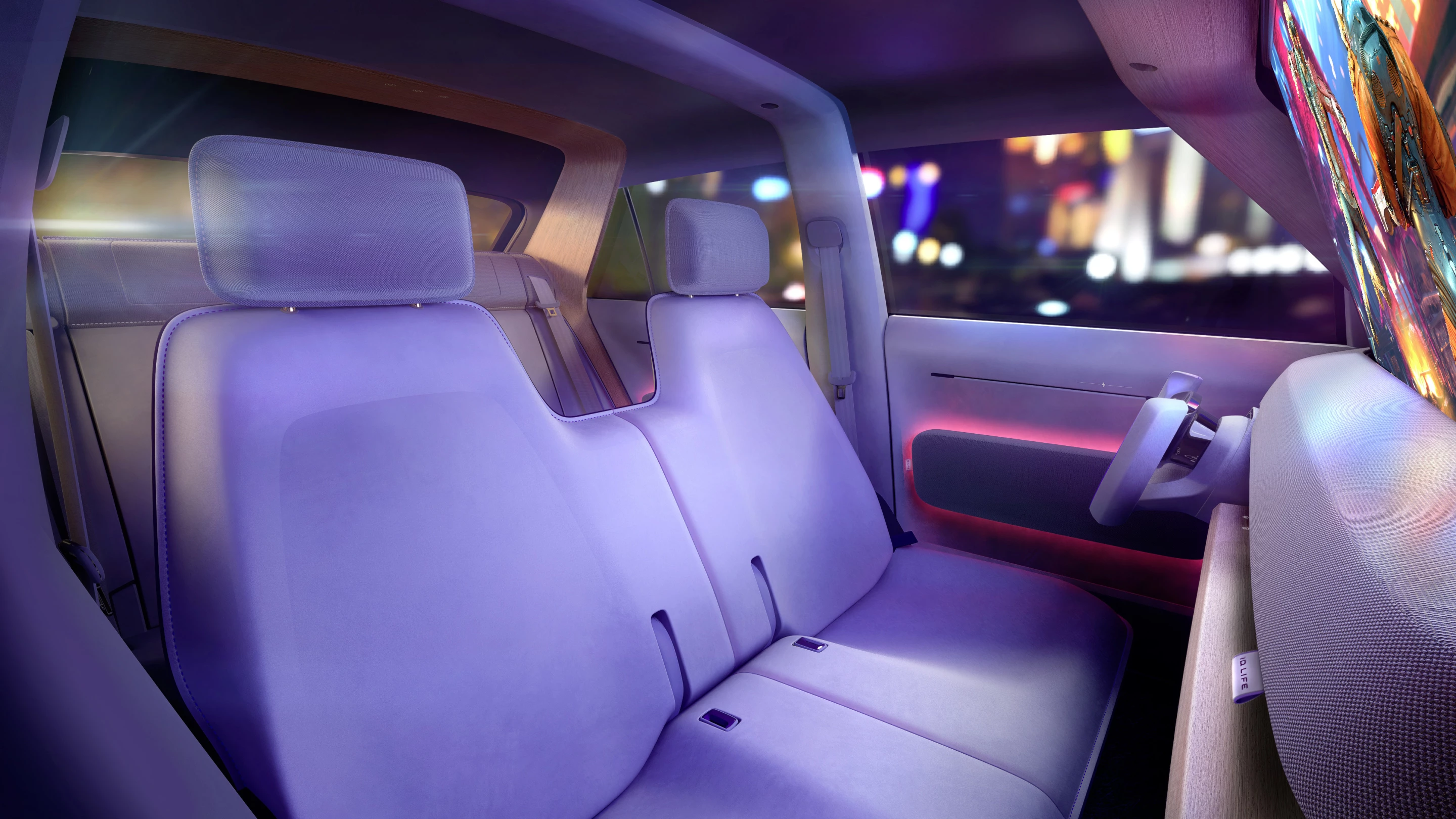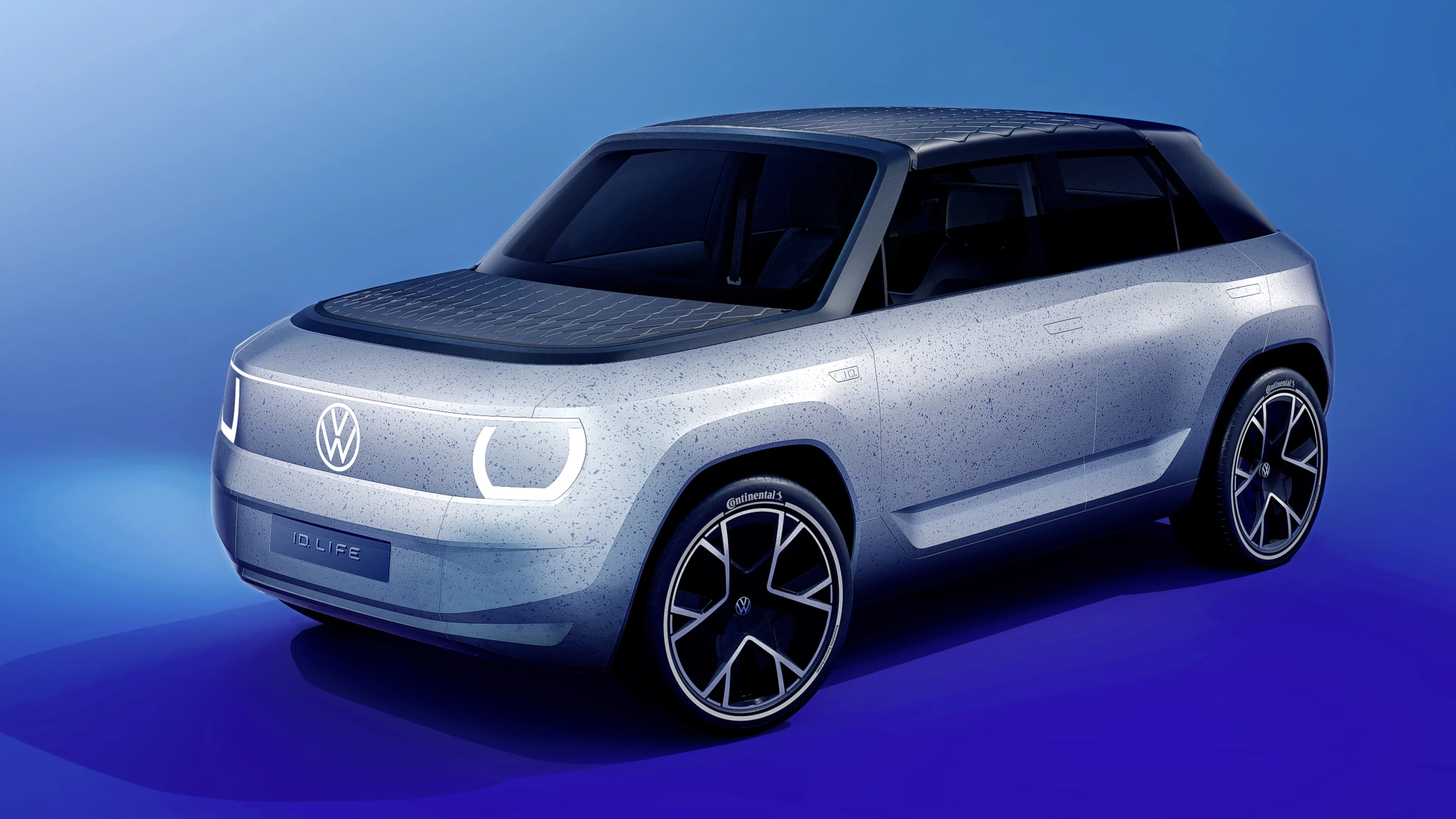The US$40,000 Volkswagen ID.4 is a practical electric vehicle many drivers can embrace, but without government incentives it's still rather high-priced compared to the ICE competition. Volkswagen plans to go downmarket, though, previewing an entry-level compact electric hatchback with its all-new ID. Life. The concept car has modernized-classic hatchback proportions, a digitized stare, electric front-wheel drive and a targeted price tag as low as $24,000.
Styling-wise, Volkswagen hits the mark with massaged throwback proportions colored in by contemporary technology. The sharp lines and angles throughout elicit memories of Volkswagen Golf I and II models, while inset illumination, rounded corners and sustainable materials bring onlookers back to the present day. The ID. Life very much reminds us of an even simpler, more angular take on the Honda e, and Volkswagen makes a point to pare down exterior styling to the basics, deleting any ornamentation that doesn't serve an essential function.

Underneath its modernized-retro skin, the 161-inch-long (409-cm) ID. Life stands on a new version of VW's MEB all-electric architecture adapted for small cars. It's the first MEB vehicle equipped with a front-wheel drive, pairing a 231-hp electric motor with a 57-kWh high-voltage battery pack for up to 249 miles (400 km, WLTP) of range and comfortable 6.9-second 0-62 mph (100 km/h) acceleration. That range is modest for a vehicle that won't hit streets for years but probably enough for a car meant to spend most of its time in the city.
"The ID. Life is our vision of next-generation fully electric urban mobility," says VW CEO Ralf Brandstätter. "The concept car provides a preview of an ID. model in the small car segment that we will be launching in 2025, priced at around 20,000 euros [approx. US$23,700]. This means we are making electric mobility accessible to even more people. In creating the ID. Life, we have consistently focused on the needs of younger customers."
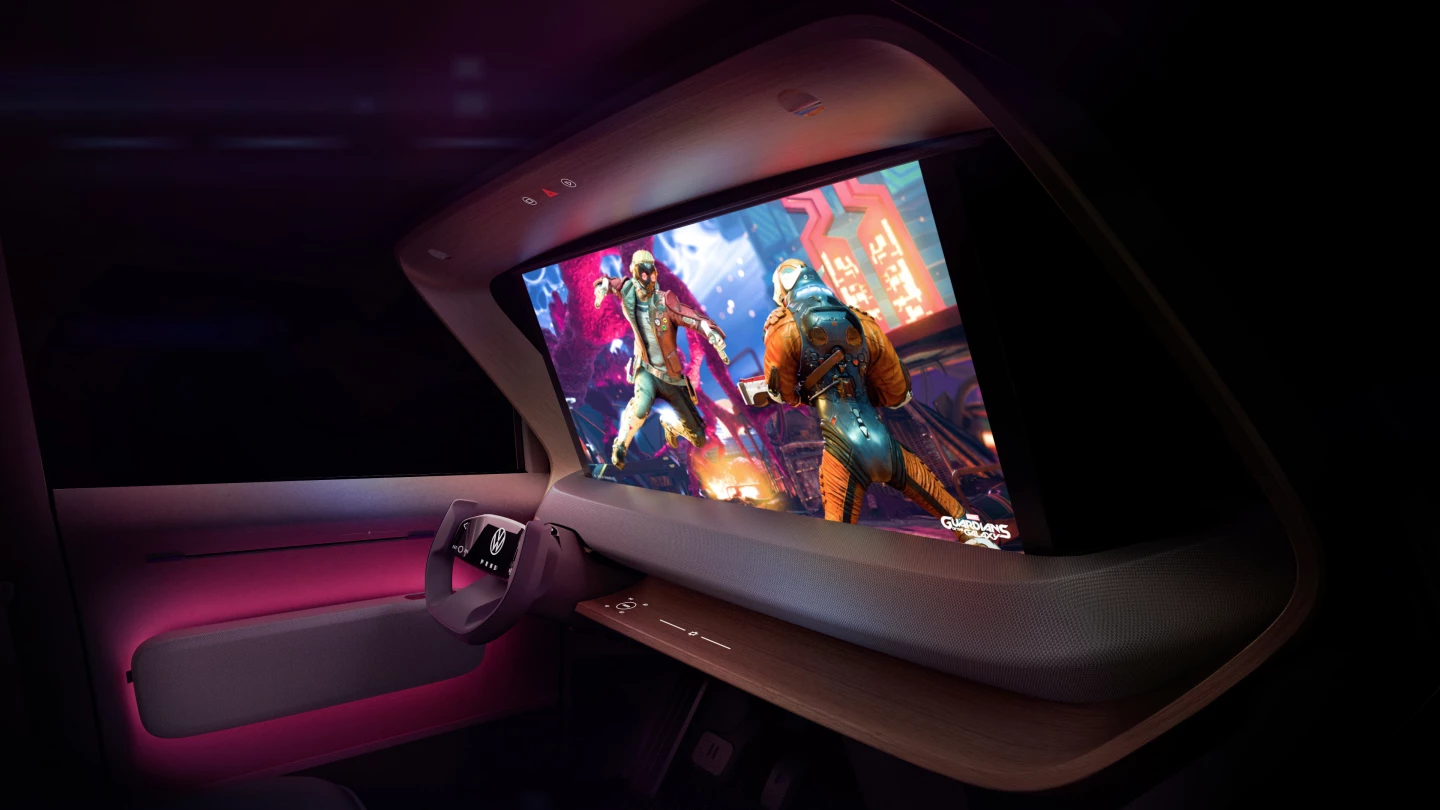
With those younger customers in mind, VW posits that ID. Life drivers won't be concerned only with connecting points A and B but also with having "communal experiences" on wheels. VW turns the interior below the removable air-chamber textile roof panel into a multipurpose lounge that serves as a mini-cinema and gaming room. A retractable projection screen pulls up from the dashboard to work with the included projector and video game console. The front and rear benches, meanwhile, fold down for watching movies or gaming as if in one's own bedroom. The 6.6-foot-long (2-m) bed even teases the possibility of the ID. Life becoming the world's tiniest VW urban micro-camper.
The projector system absorbs some of the functions of the absent infotainment touchscreen, and the driver's smartphone takes on others, mounting to the dashboard for tasks like navigation and vehicle information. Volkswagen further streamlines the cockpit by eliminating the hard controls and centering a compact curved touchscreen inside the steering wheel.

We don't suspect gaming consoles or projector systems will be standard or optional equipment at VW dealerships anytime soon, but an ID. Life-inspired car will make its way to market as VW looks to rapidly multiply its electric offerings. It plans for EVs to make up 70 percent of total European sales and 50 percent of Chinese and American sales by 2030.
Europe is a safe bet, but Volkswagen's announcement does not indicate what other markets in which the ID. Life will be sold. VW has a few years to make that decision, though. For now, the model is on show at the IAA Mobility show in Munich, where it made its world premiere.
Source: Volkswagen
